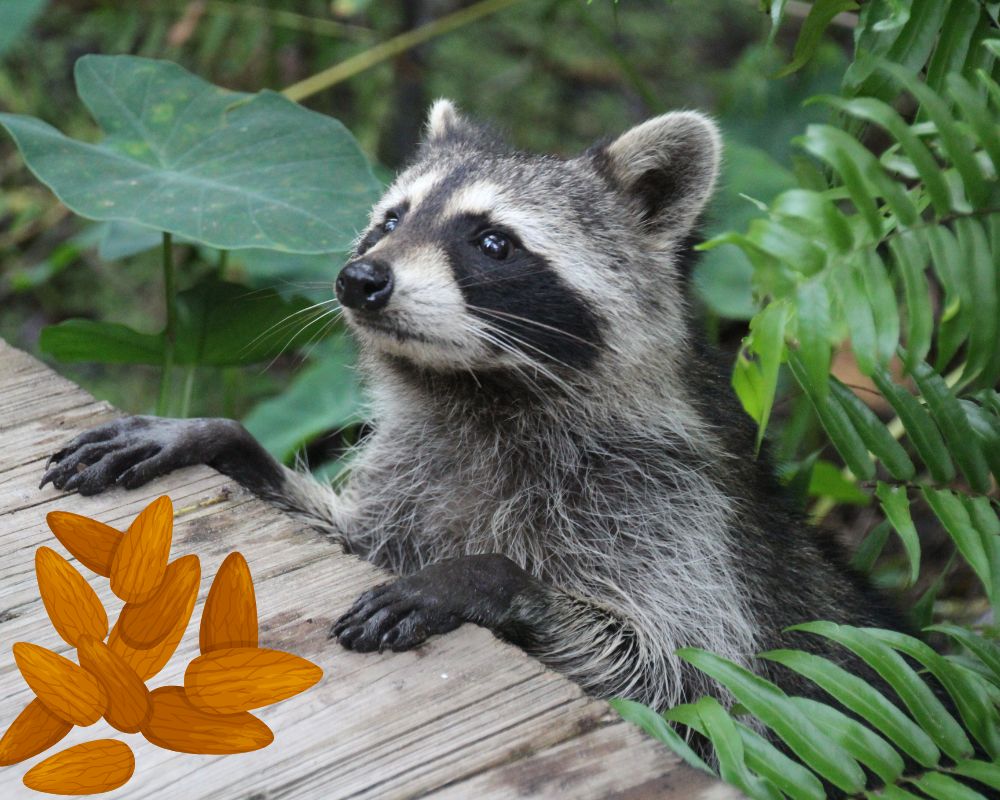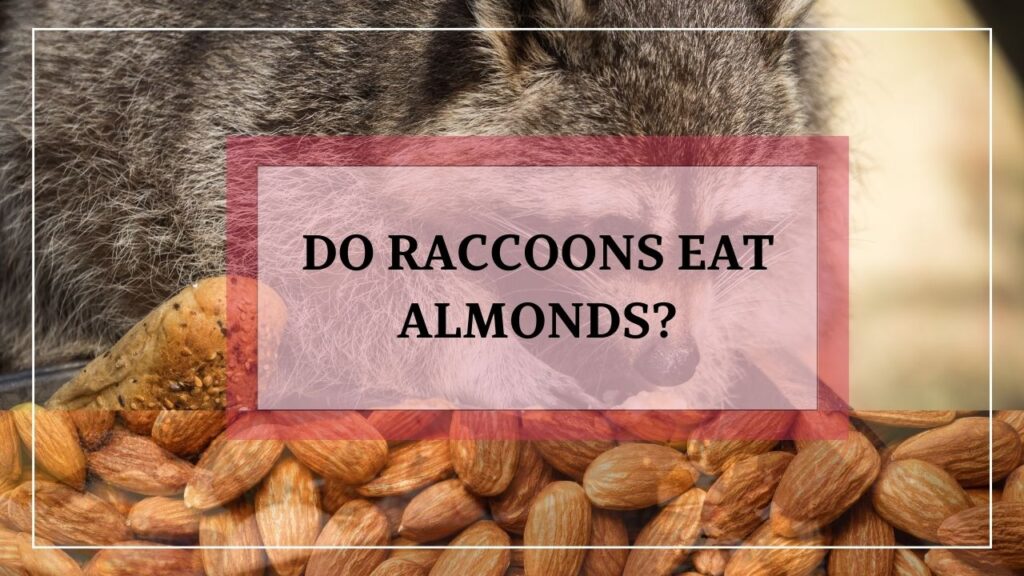Raccoons are known for their mischievous and curious nature, frequently seen rummaging through trash cans and dumpsters in search of food. But what about almonds? Do raccoons have a taste for these tree nuts, and do they pose a threat to almond crops? In this article, we will explore the dietary habits of raccoons and their relationship with almonds to provide a better understanding of this fascinating creature.
Yes, raccoons may eat almonds if they have access to them. Almonds are not a natural part of a raccoon’s diet, but they are omnivores and are known to eat a wide variety of foods, including fruits, vegetables, insects, and small animals.
If given the opportunity, raccoons may try eating almonds, but they are not a significant source of nutrition for them. Raccoons may cause damage to almond crops if they become a regular food source, but this is usually not a widespread issue.
Raccoons and almonds – is it a common occurrence?
Well, to speak about this, we should first address raccoons’ diet in general to create a proper understanding of what makes almonds attractive to raccoons.
A Brief Overview Of the Raccoons Diet
Raccoons are omnivores, which means they eat both plants and animals. Their diet is diverse and opportunistic, consisting of:
- Fruits: Berries, grapes, and other types of fruits are often a staple in a raccoon’s diet.
- Vegetables: Corn, sweet potatoes, and other vegetables can also be a part of their diet.
- Insects: Raccoons feed on insects such as crickets, grasshoppers, and beetles.
- Small Animals: Raccoons will also eat small mammals, fish, frogs, and other small animals.
- Human food: If available, raccoons will eat human food such as pet food, garbage, and even food from bird feeders.
Overall, raccoons have a flexible diet and will eat almost anything they can get their paws on. They are adaptable and can easily switch their food sources depending on availability.
Now, let’s check what can attract raccoons to almonds:
What Attracts Raccoons To Almonds?

Raccoons are opportunistic animals and will eat almost anything readily available to them. The following factors can attract raccoons to almonds:
- Accessibility: If almonds are easily accessible, such as in a backyard orchard, raccoons may be attracted to them.
- Smell: The sweet, nutty smell of almonds can attract raccoons, especially if they associate the smell with food.
- Hunger: If raccoons are hungry and there is no other food source available, they may turn to almonds as a source of nutrition.
- Lack of other food sources: In areas where natural food sources are scarce, raccoons may resort to eating almonds if they are readily available.
Note: It's important to note that while raccoons may be attracted to almonds, they are not a significant part of their diet and are usually not a major concern for almond crops. Raccoons can cause damage to almond trees and crops, but this is usually not widespread.
FAQs
What Kind Of Nuts Can Raccoons Eat?
Raccoons are omnivores and will eat a wide variety of foods, including nuts. Here are some common nuts that raccoons may eat:
1. Acorns: These are a staple food for raccoons in some areas, especially in the fall when they are abundant.
2. Walnuts: Walnuts can be a beneficial food source for raccoons, providing them with essential nutrients and energy. Walnuts are high in fat and protein, which are important components of a raccoon’s diet. Eating walnuts can help raccoons maintain their health and survival, especially during periods of food scarcity.
3. Almonds: As mentioned, raccoons may eat almonds if they have access to them.
4. Hazelnuts: Raccoons may also be attracted to hazelnuts and may cause damage to hazelnut trees.
5. Peanuts: Raccoons may also be attracted to peanuts and may be attracted to bird feeders that offer peanuts.
Do Raccoons Eat Oatmeal?
Yes, raccoons may eat oatmeal if it is readily available and they have access to it. However, oatmeal is not a natural part of a raccoon’s diet and should not be relied upon as their primary source of nutrition.
Raccoons need a diverse diet that includes a variety of foods to maintain their overall health. Eating too much oatmeal can also lead to digestive problems for raccoons, as it is high in fiber and may cause digestive upset if consumed in large quantities.
Do Raccoons Eat Oreos And Cookies?
Yes, raccoons may eat Oreos and cookies and a wide variety of human foods. However, Oreos and other processed foods should not be relied upon as a significant part of a raccoon’s diet. These types of foods are high in sugar and fat and can cause health problems if consumed in large quantities. They can also suffer the same consequences as humans — bad teeth and high cholesterol. [1]
The Bottom Line
In conclusion, raccoons are omnivores and have a diverse diet that includes fruits, vegetables, insects, small animals, and even human food. While they may eat almonds if they have access to them, almonds are not a significant part of their diet and are usually not a major concern for almond crops.
Raccoons can be attracted to almonds based on factors such as accessibility, smell, hunger, and lack of other food sources.
It’s important to provide raccoons with a balanced and diverse diet to maintain their overall health and well-being, and to avoid offering them human foods such as Oreos and cookies, which can cause health problems if consumed in large quantities.

